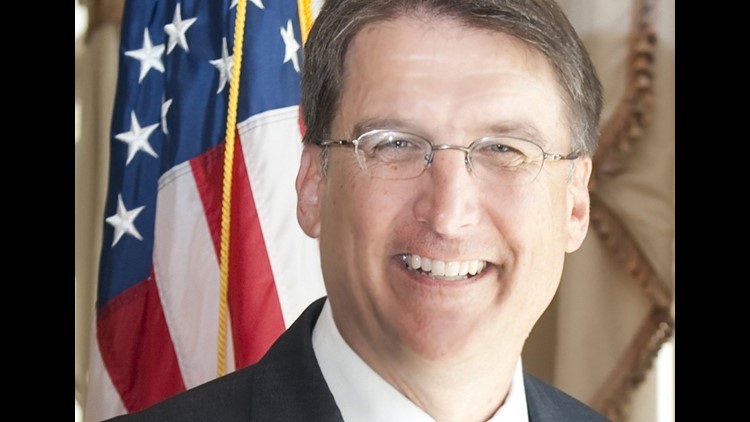RALEIGH, N.C. — North Carolina casts its so-called bathroom bill as a “common sense bodily privacy law.” The federal government calls it discrimination, pure and simple.
The two will face off in a federal court in North Carolina after two of the state’s top officials Monday sued the U.S. Justice Department, Attorney General Loretta Lynch and one of her assistants.
The lawsuit calls last week’s federal demand that the state “remedy” its Public Facilities Privacy and Security Act by Monday or face consequences “a baseless and blatant overreach.”
The act bans individuals from using public bathrooms that do not correspond with their biological sex, as dictated by their birth certificates.
In its letter last week to Gov. Pat McCrory, the Justice Department asserted, “Access to sex-segregated restrooms and other workplace facilities consistent with gender identity is a term, condition or privilege of employment. Denying such access to transgender individuals, whose gender identity is different from their gender assigned at birth, while affording it to similarly situated non-transgender employees, violates Title VII.”
North Carolina’s lawsuit, filed by McCrory and state Department of Public Safety Secretary Frank Perry, calls the Justice Department’s position a “radical reinterpretation of Title VII of the Civil Rights Act.”
‘Not a protected class’
Title VII, among other things, outlaws discrimination in federally assisted programs and authorizes Lynch to file lawsuits to protect constitutional rights in public facilities.
North Carolina attacks this foundation in its lawsuit, saying precedence is clear: “Transgender status is not a protected class under Title VII,” and it cites a half-dozen cases that it says back its stance. Only Congress can change this, the lawsuit says.
Even if the state felt transgender individuals were afforded federal protection, the Justice Department demands overstep because the law “allows accommodations based on special circumstances, including but not limited to transgender individuals.”
Even application?
The lawsuit emphasizes that no one is facing discrimination because the law applies equally to everyone.
“All state employees are required to use the bathroom and changing facilities assigned to person of their same biological sex, regardless of gender identity, or transgender status,” it says.
Perhaps the writing was on the wall. Before Monday’s action, McCrory repeatedly said his response to the Justice Department would resonate beyond the Tar Heel state.
“This is no longer just a North Carolina issue,” he said in a Fox News interview Sunday. “This is a basic change of norms that we’ve used for decades throughout the United States of America and the Obama administration is now trying to change that norm — again not just in North Carolina, but they’re ordering this to every company in the United States of America — starting tomorrow I assume, or Tuesday.”
Federal funds
North Carolina could lose a lot of federal money for failing to comply with the Justice Department — potentially hundreds of millions of dollars for its universities alone.
The Justice Department also sent a letter to the University of North Carolina Board of Governors telling it that new act was in violation of federal law. It was given the same Monday deadline.
McCrory said Sunday that this action sets a precedent, with the federal government “now telling every university that accepts federal funding that boys who may think they’re a girl can go into a girl’s locker room or restroom or shower facility, and that begins I assume tomorrow.”
Governor calls deadline ‘unrealistic’
McCrory’s argument against the feds is twofold — that the state of North Carolina hasn’t been given enough time to respond and that the federal government is overstepping its authority.
“This unrealistic deadline by the federal government is quite amazing,” he said in his Fox News interview. “It’s the federal government being a bully.”
McCrory also points to the fact that Title VII of the Civil Rights Act uses the term “sex” when it comes to gender issues, and “Congress does not define sex” as something that can be chosen.
“The Justice Department is making law for the federal government as opposed to enforcing it,” McCrory said.
Former Attorney General Eric Holder disagrees, and said in a 2014 memorandum that transgender discrimination claims are covered under Title VII. The Equal Opportunity Employment Commission also interprets Title VII as forbidding discrimination against transgender people
Lawsuits and petitions
The act puts in place a statewide policy that bans individuals from using public bathrooms that do not correspond to their biological sex and stops cities from passing anti-discrimination ordinances to protect gay and transgender identity. That power is reserved for the state under the new law.
Since its passage in March, it’s drawn a flurry of condemnation from civil liberties groups, LGBT advocates, Democrats and some business leaders.
The American Civil Liberties Union of North Carolina and two transgender men have filed suit against the government.
After the law’s passage, musicians Bruce Springsteen, Demi Lovato, Nick Jonas, and the bands Pearl Jam and Boston have canceled concerts in the state — which has cost one major venue nearly $200,000 in ticket sales.
PayPal and Deutsche Bank have both canceled plans to expand into North Carolina.



